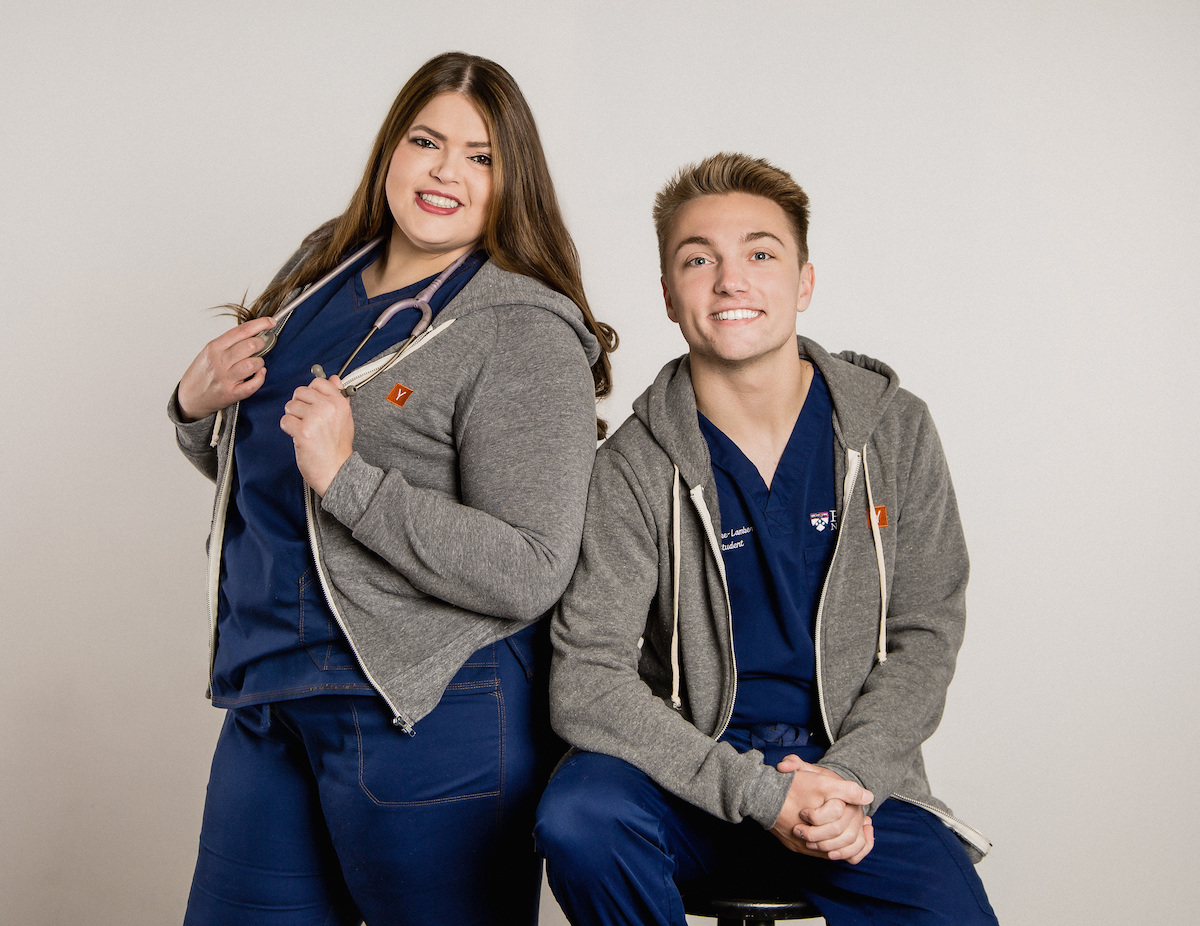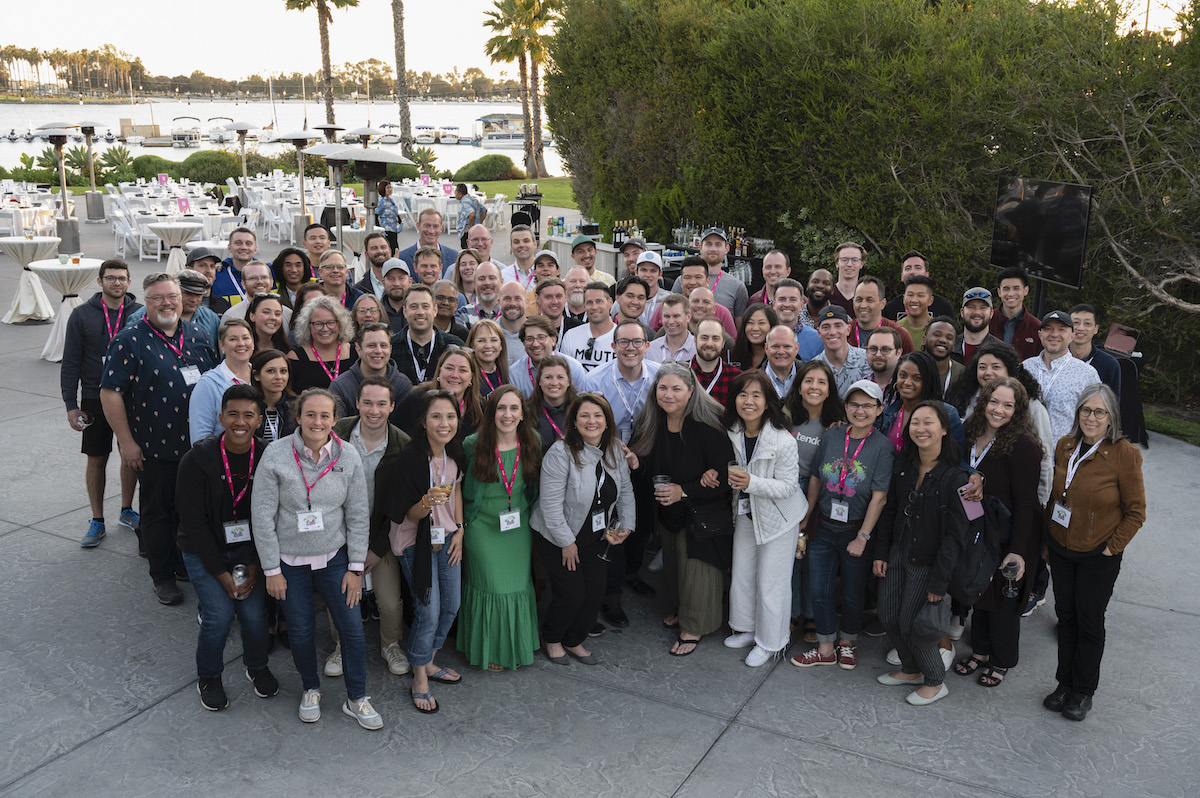The economic landscape for tech startups looked quite different at the start of 2022 than it does this summer.
Founders of later-stage companies have faced chaotic fundraising cycles, up-and-down valuations and layoffs. Did the same challenges persist for the early-stage companies we deemed the most promising at the start of the year?
Each year in January, Technical.ly identifies the most intriguing young tech companies from around the region. These RealLIST Startups are poised to do big things, innovate in their respective industries and continue to make Philly a great place to build.
We consider companies that are less than three years old, make their revenue from a specific product offering, and haven’t yet been through an exit, merger or acquisition. Philly’s 2022 RealLIST Startups are working in products for nurses, employee benefits, software, healthcare technologies and more.
About six months after these companies made the list, where do they stand? How have they grown? We asked them:

10. Seshie
We didn’t hear from the cofounders of the marketplace of data-driven, curated learning and development workshops, but the platform continues to add “Seshie guides,” or experiences. In February, the company was promoting Black History Month trivia and sessions such as “Interrupting Unconscious Bias” and “Unmasking Microaggressions.” In July, it continued adding to its catalogue with a workshop on effective and impactful goal setting.

9. Eternally
This healthcare tech startup founded in 2020 was made with the goal of easing “life’s hardest moments” by walking patients through the step-by-step process of setting up an advance directive, or living will.
The startup was recently chosen by Startup Bucks to receive a $5,000 grant from Penn Community Bank as part of the Bucks Built Startup Fund’s most recent round. In April, cofounder Matti Perilstein Burnett said the company’s Philly-area HQ has been an advantage with investors.
“It’s also been helpful in terms of our story and our growth. PA is not particularly friendly for telehealth startups, and we’ve overcome a lot of hurdles,” she said. “So when we go to more friendly policy-driven states, its almost like we’ve proven ourselves already. If we can do it in Pennsylvania, we can do it here.”
8. Journal My Health
Since founder Tracey Welson-Rossman spoke to us about her 2021-founded healthcare app that allows those with chronic conditions to track their symptoms, the platform has also started expanded its features with a menstrual cycle tracker.
Welson-Rossman said the startup hit its 10,000th download at the end of June, and continues to add 10 to 15% more users every month. It also just started its first pilot with a direct primary care practice, providing a partially branded Journal My Health app to its patients. The startup is on track to start another pilot in September with a health product. Welson-Rossman hopes to close a pre-seed round the same month.
“Our goal is to provide more value to their patients by creating better and more productive conversations during appointments,” she said of the upcoming pilot.
7. Common Paper
The software platform that streamlines contract negotiation is in its second year, and raised a $4.5 million seed round since we named them to the list in January. The team has also released three additional standard contracts: the Cloud Service Agreement, the Service Level Agreement, and a Data Processing Agreement.
“We’ve shipped dozens of new features and improvements to our product. One that I’m particularly excited about is webhooks for contract events,” cofounder Jake Stein said. “This is an important step towards our vision of turning contracts into APIs, and it enables our users to trigger actions and get notifications in Slack, Google Sheets, and Zapier based on the events and metadata in their contracts.”
The team has also grown to nine people who are spread across the US, Stein said, though they had their first offsite in Philly.

6. Vette
Shortly after Vette landed on our list, the startup launched to the public with a pivot from its original idea of software engineers screening other software engineers. That service definitely had a market, Wanner said. But it wasn’t as large and didn’t serve as pressing a need as the market of vetting workers for warehouses, retail, fast food and other service-focused jobs. Now, the platform allows anyone to do a first screen of applicants for high-volume and high-turnover jobs
“The platform was always meant to be a sort of Uber for phone interviews, and we realized the higher the skill, the less on-demand it could be,” founder Amber Wanner said in March. “This pivot is exactly what we needed. The applicant is initiating their own interview.”
5. Reflect
When we ran into Todd McNeal, cofounder of SaaS startup Reflect, at Philly Startup Leaders’ Entrepreneur Expo in May, he had a few new updates.
First, he was excited to get out and about in the community again. He had headed to the event to have some customer-focused conversations, but “it’s just nice to talk to other folks and see people.”
And secondly, the company had recently doubled its headcount from four to eight, and was operating with a half local and half remote team.
4. Lumify
In May, this nurse-led startup raised a $1.25 million seed round with participation from Y Combinator, Flare Capital, Gaingels, Fresco Capital, Crista Galli Ventures, and individual investors, like Philly founder Mark Switaj, of Roundtrip.
The company also launched its marketplace app, and hit a bunch of user milestones, like 50,000 healthcare workers and 150 brand partners on the platform. Cofounders Anthony Scarpone-Lambert and Jennifferre Mancillas went on a national tour of cities for Nurse’s Week, and announced some partnerships with brands such as Medline and BetterHelp. The company also launched the second generation of its uNite Light, began providing Lumify as a benefits perk to healthcare staffing companies Clipboard Health and CareRev, and began shipping to Canada.

3. The Rounds
Since January, the sustainability-focused home and pantry goods delivery service has expanded to two other major US cities, Atlanta and Miami. Since its initial launch in Philadelphia, the company has expanded its reach to include more neighborhoods in Philadelphia, and launched in DC.
It’s following an East Coast expansion plan in quick succession, cofounder Alexander Torrey said.
“It’s been important for us to continue to learn and prove our model will work in very different markets,” he said. “That’s what we’re excited about. It’s going to teach us a lot about how to operate.”
2. Mainfactor
When we last heard from Mike Fiebach, cofounder of the ecommerce company, he was talking about the fact that his hometown had become a great place to build a startup, especially on the other side of a pandemic. Mainfactor has since added to its team, and he said he’d been really enjoying the seed stage of the company.
“In the earlier days, I always got asked why I was in Philly. But I think Philly has established itself as a hub for startups,” Fiebach said. “And being on the other side of a pandemic too, people don’t care anymore where you come from.”
1. Tendo
The quickly growing healthcare software company hit a big milestone in June: hiring its 100th employee. The company makes a platform that would allow the clunkier parts of healthcare — like scheduling appointments, data input, checking in at the front desk and managing communication — to all exist in one place. After two big rounds totaling $69 million, the company quickly upped its headcount.
Kelly Makovsky, VP of business operations, who has been with the company since day one, said the company focuses on hiring for quality versus quantity.
“It’s been incredibly important to recognize that we were all part of the reason we were able to get to this stage of building this,” Makovsky said.

###
And check out updates on some of these honorable mentions, in no particular order:
- Neuralert — The stroke detection device company reports that it has $1.3 million of a $1.75 million seed round closed, and achieved MVP when it received working prototypes of its purpose-built wristband devices. Plus, its FDA clinical study design and endpoints are nearly completed.
- SnapRefund — The company launched its product, was selected as a showcased FedNow service provider, won $15,000 in the CBK Ventures pitch competition, joined Chase Bank‘s accelerator, and got a $100,000 investment from Northwestern Mutual‘s Black Founder Accelerator.
- Collx — The startup acquired Card Dealer Pro, hit 200,000 users in July, generated revenue from dealer subscriptions and in its app and exhibited at the National Card Show.
- Hey Auntie! — The wellness platform for Black women has began working with a developer on its proof of concept demo that it’ll soon test with users and partnered with fellow honoree SnapRefund for its digital payments to contractors.







